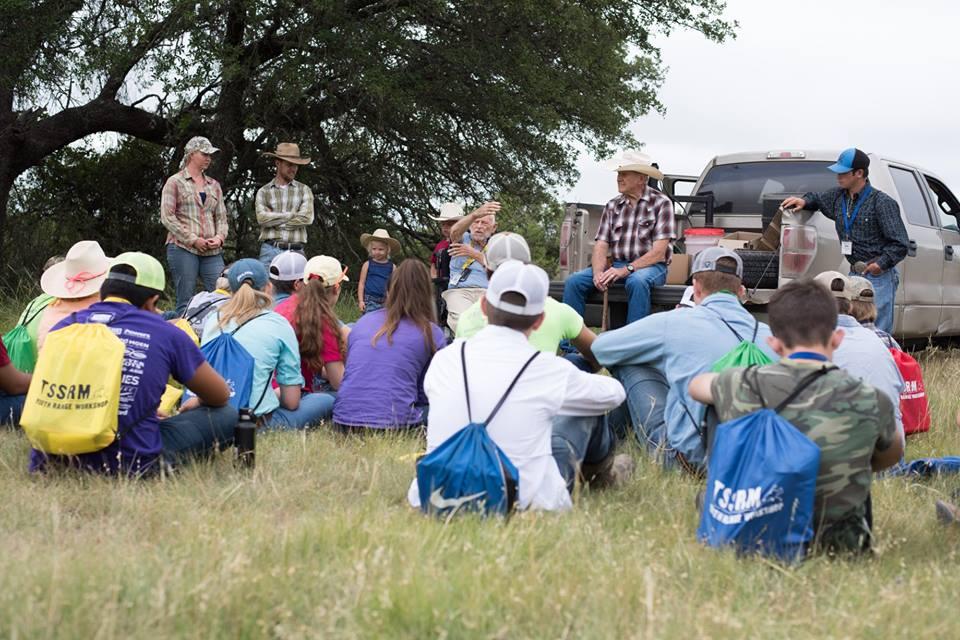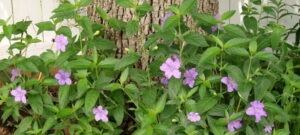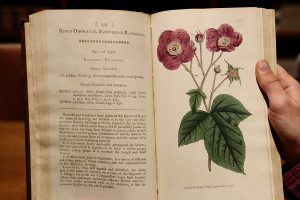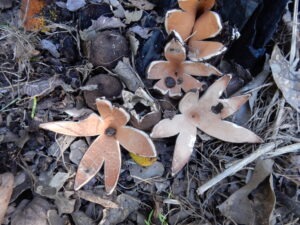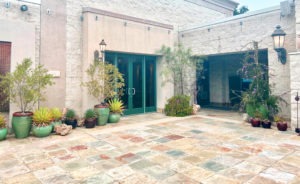On The Road Again
It’s 5 o’clock on Sunday morning, June 24, 2018. I’m pulling out of my driveway headed south to Junction, Texas. As I drive along in the darkness of the Central Texas highways I keep asking myself, “Why do I continue to subject myself to this year after year? After all, at my age why should I spend a week in the blazing hot Texas sun working at least 18 hours every day with a bunch of teenagers I don’t even know?”
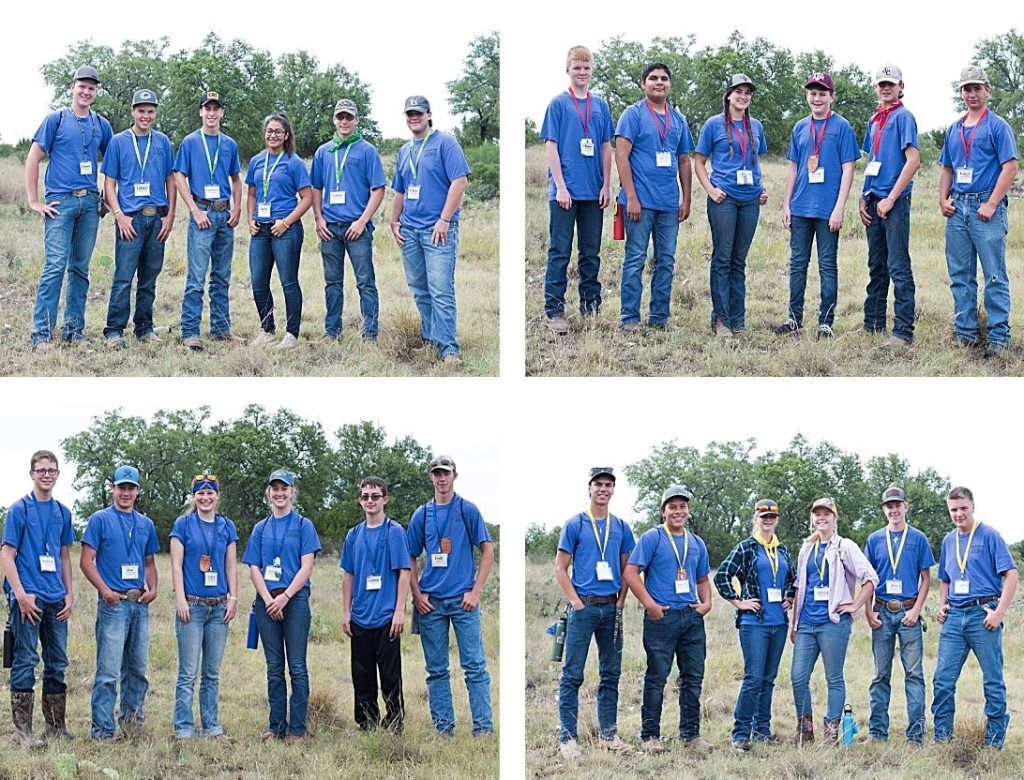
I am one the directors and instructors for the Texas Section Society for Range Management’s Youth Range Workshop (YRW), and I am on my way to meet the other directors for lunch and a chance to finalize last minute details before the work begins. This will be 64th annual Youth Range Workshop where high school students between the ages of 14 and 18 come to learn about natural resource management and land stewardship, and it begins this afternoon.
After we adults get moved in to our week-long “home on the range” at the Texas Tech University Center in Junction, we have one last planning session and then take a deep breath before the workshop participants begin arriving at 1:00. By 3:00 all the students have been dropped off by their parents or sponsors, have checked in, and are in the classroom for a brief orientation before heading outdoors for several interactive “get-acquainted” ice breakers.
This year we have 24 teenagers from across the state registered for the workshop. These two dozen students will spend the week learning about rangelands and stewardship of natural resources. They will be taught by a diverse group of volunteer instructors including ranchers, educators, scientists, conservationists, university professors, young professionals, consultants, certified prescribed burning professionals, and even a couple of grizzled old veterans of range management. The directors and instructors represent a wide range of age, experience, interests, and areas of specialization, but they’re all dedicated to the management of Texas rangelands and working with younger generations to help them understand and appreciate the value of our soil, water, plant, and animal resources. It takes the time, input, effort, and financial support of a small army of people and organizations working throughout the year to prepare, arrange, update, finalize, and conduct the workshop. Just like a diverse plant community is essential to healthy ecosystems, this diverse team of volunteers is critical to a successful YRW year after year.
In the earliest years of the workshop the students who attended were mostly boys from ranches in the Central Texas area. As interest grew, boys from other parts of the state began to participate. Later, the participant list included girls. Still, workshop participants came almost exclusively from rural communities and from 4-H and FFA programs. Now, any high school student from 14 to 18 years of age who is interested in learning more about natural resources, plant identification, livestock, wildlife, soil, water, and ecology is welcome to attend.
Learning By Doing
The students spend six days of intense activity in the field and classroom involved in everything from
- plant identification,
- studying species composition and plant community dynamics,
- conducting forage inventories,
- learning the grazing and browsing habits of livestock and wildlife,
- learning habitat management principles and techniques for various species of wildlife,
- conducting field tests to determine the benefits of vegetation on infiltration and runoff rates as well as soil erosion,
- transpiration rates of different plant species,
- assisting with a prescribed burn on a local ranch,
- and how all of these things are tied together!
Hands-on learning is the focus, whether it is collecting plants, assisting with an actual prescribed burn, clipping and weighing vegetation, measuring soil temperature, participating in the operation of a rainfall simulator, or learning to use the latest phone app for range management.
Even the recreational activities are teaching tools where the students learn important ecological principles and resource management concepts and practices while playing games and having fun. Where else can a person play the “Grazing Game” where they learn to graze selectively like a cow while tethered to a teammate as they search the pasture for the right amount and quality of forage, avoid poisonous plants, look for supplemental protein, and wait at a water trough to get a drink of water? Or stranger yet, following a bunch of odd clues and unexpected directions that seem to make no sense and have them going randomly from place to place. Then it finally dawns on them that this is the “Carbon Cycle Game” about how the ultimate fate of carbon is determined by various activities and practices. Then to burn off a little more energy, a scavenger hunt where teams search for items that are related to natural resource management and the environment. But the most enjoyable learning exercise is swimming in pristine, spring-fed Johnson Creek and discussing the role of well-managed rangeland in maintaining the functions and natural beauty of the spring and the creek. The goal of the entire workshop is to tie these lessons together.
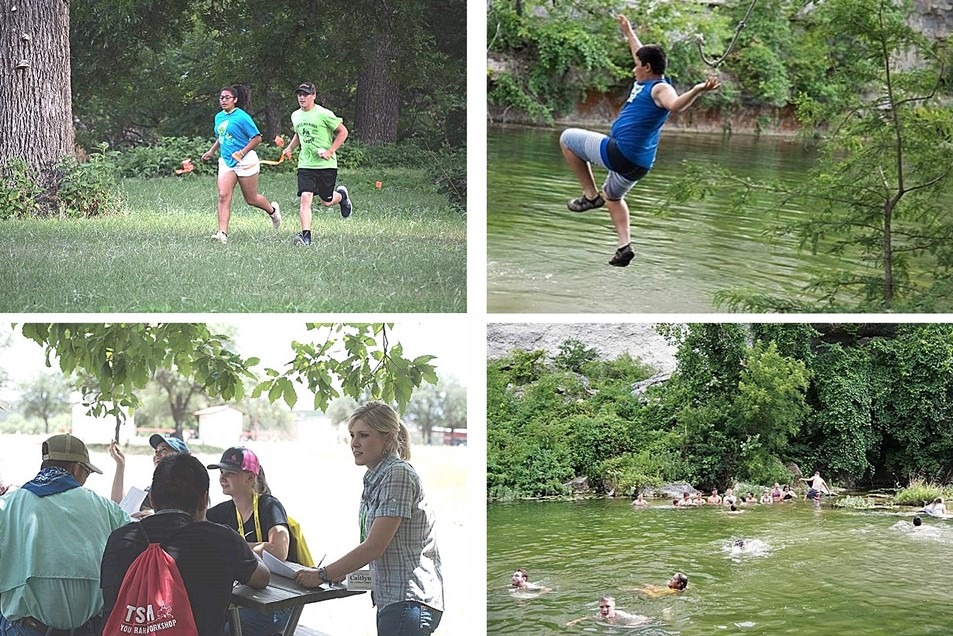
More Than Science & Nature
Leadership development, teamwork, and public speaking are also emphasized during the week. Cabin leaders and team leaders are selected daily by their peers. Those chosen each day are responsible for leading their respective groups in daily assignments and activities as well as assisting other members of their cabin or team in successful completion of the day’s agenda. The cabins and teams learn to accept individual responsibility while working together as a unit to provide encouragement, support, and assistance to their peers. At the end of the week the members of each cabin and each team select the person who has shown the most leadership for their unit, and those outstanding leaders are recognized and receive awards for their good work. The overall outstanding team for the week is also recognized as a group with each member receiving individual awards for their role in the team’s success.
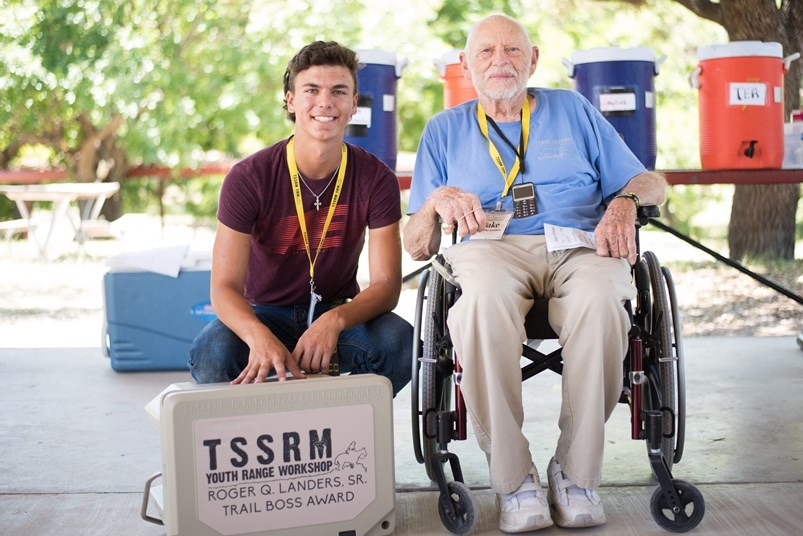
Each of the first three evenings of the workshop, students have the opportunity to participate in a public speaking activity by giving a brief talk about a natural resource-related topic. The two top speakers each night move on to compete in a competition at the Kerr Wildlife Management Area where the top six speakers are judged by an outside panel, and the winner receives an award sponsored by the Kerr Soil and Water Conservation District.
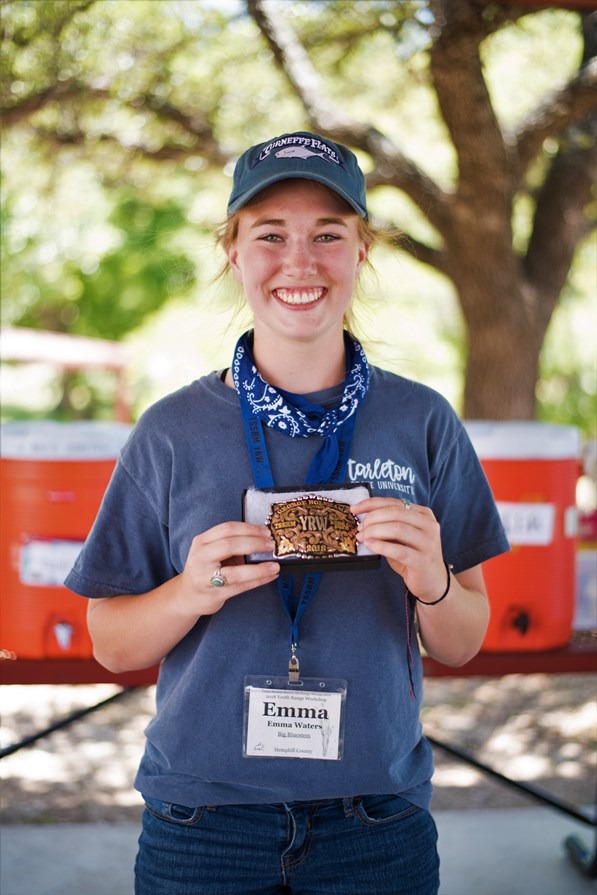
Youth Range Workshop owes its long-standing success to the ability to change and adapt, while laying the foundation necessary to understanding sound land stewardship. That challenge is what entices the team members to strive to put on an exceptional program year after year.
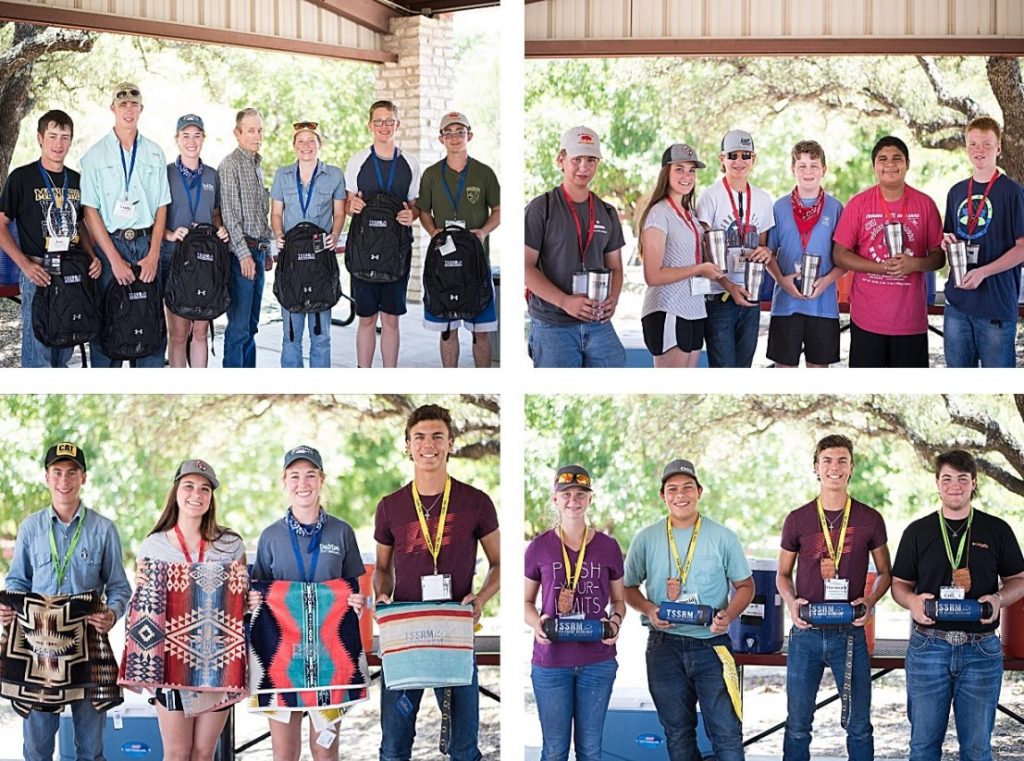
Farewell Once More
It’s 3:00 in the afternoon, June 29, 2018. The parents and sponsors of the workshop participants have retrieved their kids and are headed back to their far-flung destinations. I have just said adios to my fellow directors, and I’m heading toward home. I’m exhausted after spending a week with 24 energetic, enthusiastic, inquisitive teenagers. But as my pickup rumbles out of the gate at the Texas Tech Center at Junction, I can’t keep from smiling. I drive along reflecting on the week as I recall the names of the 24 teenagers that have just become a part of my life, and I count the Two Dozen Reasons why I did this year, and I know there will be at least Two Dozen Reasons why I will do it again next year and for many years to come.
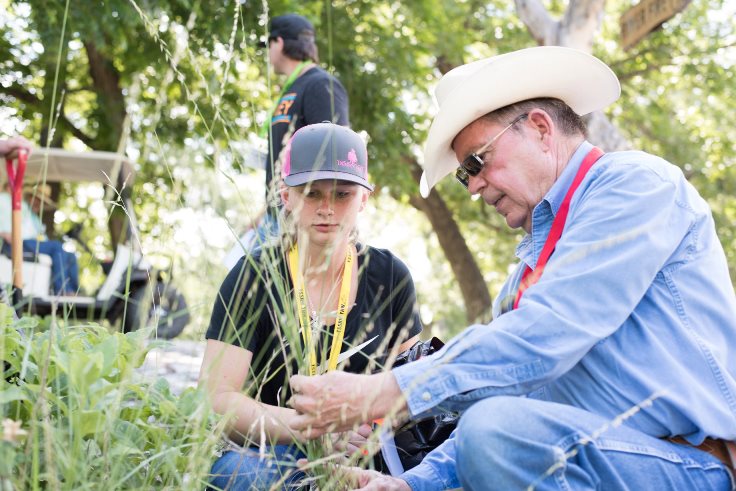
Interested in Youth Range Workshop? Find us on Facebook at Texas Section SRM Youth Range Workshop, watch for a new website coming soon. The 2019 application for the 65th Youth Range Workshop is open and can be found at http://tinyurl.com/2019YouthRangeWorkshop.

